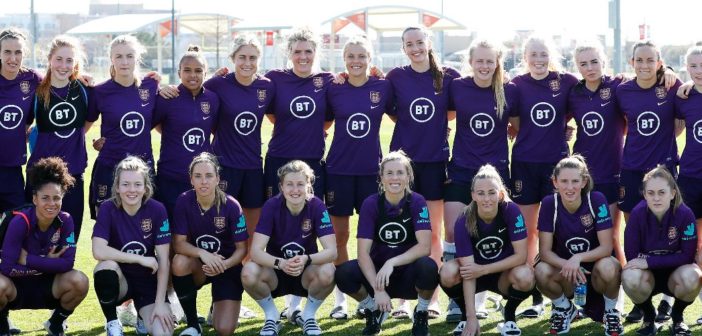We all know who’s to blame for the failings of the government during the COVID-19 pandemic: footballers. That is, at least, what Matt Hancock will keep telling you until you’re blindly repeating it, the routine spin diverting your attention from the individuals and corporations who manage to get by only paying 30p of tax.
The fall out between professional footballers, their clubs and the government will undoubtedly continue to spew ill-will into the coming months (and as for Barcelona, who knows when). From the deflections of Hancock to the Premier League clubs who rushed to furlough their employees to the players who’ve taken cuts and those who’ve donated to charity, the feeling is very much that footballers are the good guys.
There is no getting away from the eye-popping amounts of money that players at the top of the men’s game make, even gently easing down the rungs of the pyramid; being a male footballer can be rather lucrative. And those within the game who command the big bucks have earnt a lot of good will in the last few weeks by taking wage cuts to divert club money to non-playing staff or just by donating a portion of their wages directly to other causes (and cutting out the rabble about lost tax revenue).
One of the most notable has been the #PlayersTogether initiative Jordan Henderson spearheaded that’s seen Premier League footballers directly pay into charitable causes to help the NHS with the entire England Women’s squad agreeing to make a collective donation.
#PlayersTogether pic.twitter.com/nkyyh1delS
— Steph Houghton MBE (@stephhoughton2) April 14, 2020
When the announcement went up across social media channels – with each member of the squad sharing the same letter. On Instagram, one particular comment caught my eye, “About time you girls put some cash towards the NHS” it read [with a thumbs up emoji].
Away from the obscene money pumped into the Premier League, the Women’s Super League (the top tier of women’s football in England) still runs at a considerable loss. It’s the only professional league in Europe but the term “professional” isn’t equal across the board but rather refers to a minimum number of contact hours (16) per week. Some teams can offer better conditions, better facilities, more hours and better money but reality for some in the so-called professional league is an annual salary that’s a long way below half of the average yearly amount in the UK.
The reality in women’s football is part time or amateur status, of paying to play. Yes, those in WSL and those within the England set-up are, on average, better compensated but they don’t live lush lavish lives. The reality of most WSL footballers during this pandemic is being stuck inside their shared flats and houses, training with weights and resistance bands, and if they’re fortunate enough to have some green space; running.
Throughout this pandemic we’ve seen charitable contributions made and for every two articles that praise the donation, there’s always been someone asking why is wasn’t more. For the likes of Mark Zuckerberg and his Scrooge McDuck levels of wealth, that criticism is warranted. But for so many others, not least female footballers, it reads as arguing for arguments sake.
![Prost International [PINT]](https://prostinternational.com/wp-content/uploads/2021/08/PINTtFontLogoRoboto1536x78.jpg)



